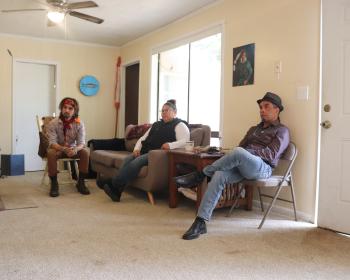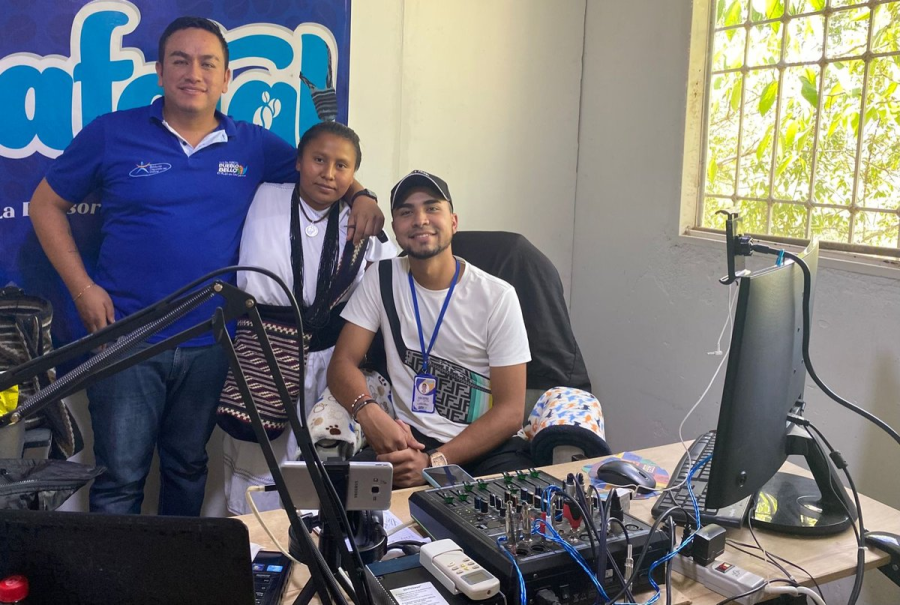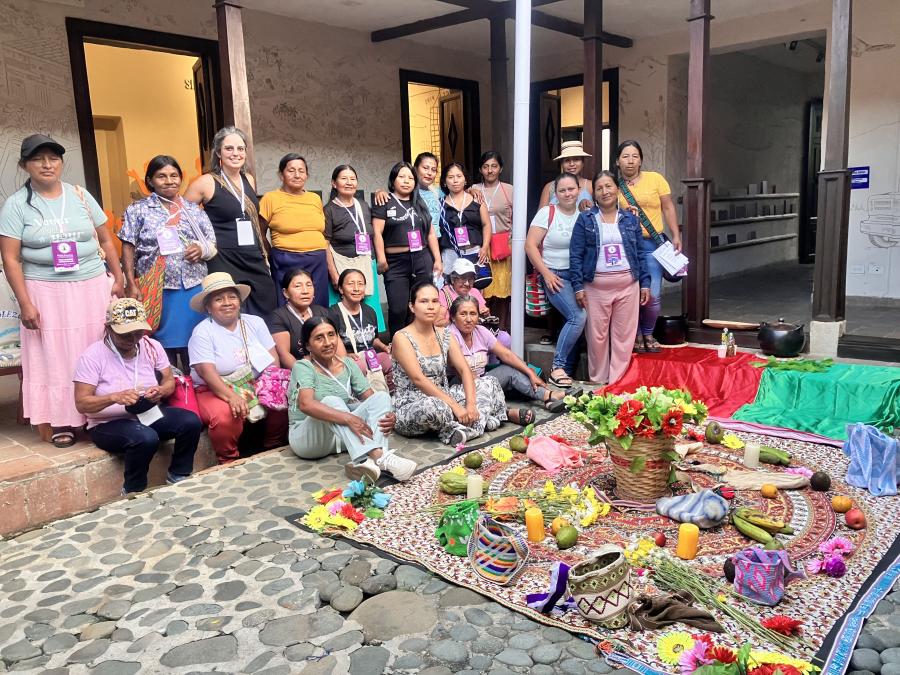
By Norberto Farekatde Maribba (Muruy Muyna)- Confederación Indígena del Alto Amazonas COIDAM
For Indigenous Peoples of the Predio Putumayo Reservation, Amazonas, Colombia, the Conference of the Parties to the Convention on Biological Diversity COP16, which will take place from October 21 to November 1, 2024, in Santiago De Cali, is an important space as it is for those who are interested in the life of our planet and humanity. The problem addressed by the COP continues to be critical due to the negligence of some sectors reluctant to comply with agreements, treaties, and conventions, whether these are binding or not. It is contradictory that while some conserve, care for, and protect life; others degrade it simply to guarantee an investment of resources and to continue polluting.
Extractivism, whatever its system or modality, legal or illegal, is harmful and inconvenient for the planet and humanity. In the mythical religious concept of the “children of tobacco, coca, and sweet yuca,” the creator Moo Buinaima gave them a single order, a single commandment, a single manifesto: to care for the life of all of us who exist or inhabit nature. Plants, animals, or minerals all have a spirit. It is necessary to care for life, for the new generations, with the sweet and cold word of advice, which springs from the mambeadero; of Good Living, of the dawning of the word in abundance, of integral balance, of the complementarity of one with the other, of the interaction of the human being with the spirits of nature. All this shows the human being as an integral part of nature. We are not a world apart from the whole.
Therefore, we expect from the COP16 a serious commitment of the parties towards the fulfillment of the environmental policy for the benefit of the planet and humanity:
The participation of Indigenous Peoples be full and effective in this space of political decision for the recognition of traditional and sacred territorial spaces, ancestral knowledge and wisdom, of immemorial use; that in environmental policy, Free, Prior, and Informed Consent be effective, for actions or acts in Indigenous ancestral territories, since Indigenous communities continue to demonstrate and contribute, in front of the majority society, the existence of another way of caring for, conserving and protecting life and our planet.
On this particular point, we would like to be direct participants in these spaces of environmental and political decision since it is not conceivable that other actors outside our reality of life, our territory, our ancestral knowledge, and our native practices continue to make decisions with different interests, ignoring our ways of conceiving and constructing life and the world. Practical support is necessary for Indigenous and local communities, who care for nature and the knowledge of life. The forms of our worldviews must guide politics without intermediaries. There is no need to implement more paternalistic policies.
The Putumayo Indigenous Reservation is the largest ancestral territory in the country in Colombia, with more than 500 hectares. The challenges that concern and threaten us are protecting the wealth of our natural resources from extractive appetite by actors outside our communities. The extraction of plants in all their expressions and benefits (timber, medicinal, flavoring, food, fuel), gold and skin exploitation, uncontrolled hunting and fishing, trafficking of animals and ornamental fish, together with the causes and consequences of drug trafficking, are the latent problems. All of these prevent us from exercising real autonomy in the territorial control of the reservation by the traditional authorities. Likewise, the presence of illegal armed groups, who have taken control of the territory, represents a serious challenge to the territorial autonomy of the Indigenous Peoples of the Putumayo Predio.
Norberto Farekatde Maribba is a Muruy Muyna Indigenous leader born in La Chorrera, in the Predio Putumayo resguardo (reserve) in the Amazonas department of Colombia. He has participated in many different organizational activities. These include fighting for Indigenous Peoples’ rights. In 1989, he participated in the process led by the National Indigenous Organization of Colombia (ONIC, by its Spanish acronym) and in 2008 he collaborated with the National Indigenous Peoples’ Organization of the Colombian Amazon (OPIAC, by its Spanish acronym). Regarding professional background, Norberto has an undergraduate degree and a master’s degree in social science with a concentration in ethnic studies. Norberto is member of the Indigenous Confederation of the Upper Amazon COIDAM, a grassroots organization from where Norberto accompanied the fight for the territorial reconquest of the Predio Putumayo reservation. The leader is guided by his commitment to "continue caring for, conserving and protecting life, and our planet; mediated by a new perspective, a rethinking of maintaining life and building the world." Norberto Farekatde Maribba is part of Cultural Survival's Convention on Biological Diversity COP16 delegation in Cali, Colombia.



